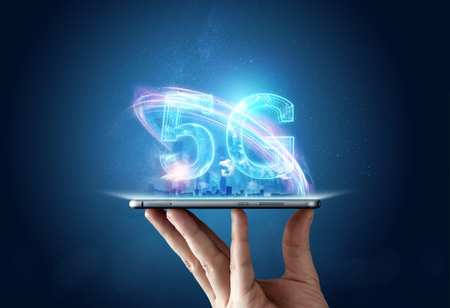Verizon 5G Network vs AT&T 5G: Which Is the Best in 2025?
telcomatraining.com – As we move further into the digital age, 5G connectivity continues to redefine how people communicate, stream, and work. Among the major players in the U.S. telecom market, Verizon and AT&T have consistently battled for dominance in 5G network coverage, speed, and overall performance. In 2025, both providers offer extensive nationwide 5G services, but how do they truly compare? Let’s dive into a detailed review of Verizon 5G vs AT&T 5G to determine which network stands out this year.
1. Coverage and Availability
When it comes to 5G coverage, AT&T has made significant progress in expanding its nationwide footprint. The company’s “5G” and “5G+” networks now cover over 320 million people across the United States, with improved penetration in rural and suburban regions. AT&T’s low-band 5G offers broad coverage, while its 5G+ (mmWave and mid-band C-band) delivers faster speeds in urban and high-traffic areas.
Verizon, on the other hand, continues to be a leader in 5G Ultra Wideband (UWB) performance. With its C-band expansion, Verizon now reaches nearly 250 million people, focusing on high-density metropolitan areas and major transportation routes. Although Verizon’s overall coverage area is slightly smaller than AT&T’s, its 5G UWB network is praised for consistency and reliability in supported zones.
Verdict:
AT&T wins in coverage breadth, while Verizon dominates in high-performance zones.
2. Speed and Network Performance
Speed is where the real battle intensifies. In recent independent speed tests and real-world performance reports of 2025, Verizon’s 5G Ultra Wideband continues to deliver average download speeds between 300–800 Mbps, with peaks exceeding 1 Gbps in select regions. This makes Verizon the go-to choice for users seeking lightning-fast connections for gaming, streaming, or large file transfers.
AT&T’s 5G+ network also shows solid performance, typically reaching 200–600 Mbps, but its speeds fluctuate depending on network congestion and location. The advantage for AT&T lies in network stability—its transition between 4G LTE and 5G is smoother, providing consistent experiences even in coverage gaps.
Verdict:
Verizon takes the lead in speed, while AT&T offers better overall reliability in mixed network environments.
3. Latency and Real-World Use Cases
Low latency is critical for emerging technologies like IoT devices, cloud gaming, and autonomous vehicles. Verizon’s mmWave 5G demonstrates impressively low latency, often under 15 milliseconds, enabling real-time data communication and ultra-responsive performance.
AT&T’s C-band spectrum delivers slightly higher latency—typically around 20–25 milliseconds—but still suitable for most modern use cases, including video conferencing and streaming 4K content. In industrial and enterprise settings, Verizon’s edge computing integration gives it a slight technological advantage.
Verdict:
Verizon wins in low-latency performance and future-ready applications.
4. Pricing and Plans
Both carriers have competitive pricing, but their structures differ. AT&T’s 5G plans generally offer better value for families, including perks like HBO Max access and unlimited hotspot data on premium tiers. Verizon’s plans, while slightly more expensive, include added benefits such as Disney+, Hulu, and ESPN+ bundles, making them appealing for entertainment-focused users.
Verdict:
AT&T is better for budget-conscious users, while Verizon suits premium service seekers.
5. Final Verdict: Which 5G Network Is Best in 2025?
In 2025, both Verizon and AT&T deliver exceptional 5G performance, but their strengths differ based on user priorities:
- Choose Verizon 5G if you prioritize speed, low latency, and cutting-edge performance for demanding tasks.
- Choose AT&T 5G if you value wider coverage, stable connectivity, and better family plan options.
Ultimately, the “best” 5G network depends on your location and usage needs. Verizon remains the speed leader, while AT&T offers more accessible nationwide coverage—making the 2025 5G race closer than ever.
SEO Keywords: Verizon 5G network, AT&T 5G, best 5G in 2025, 5G coverage comparison, Verizon vs AT&T speed, 5G performance review, 5G latency test.







